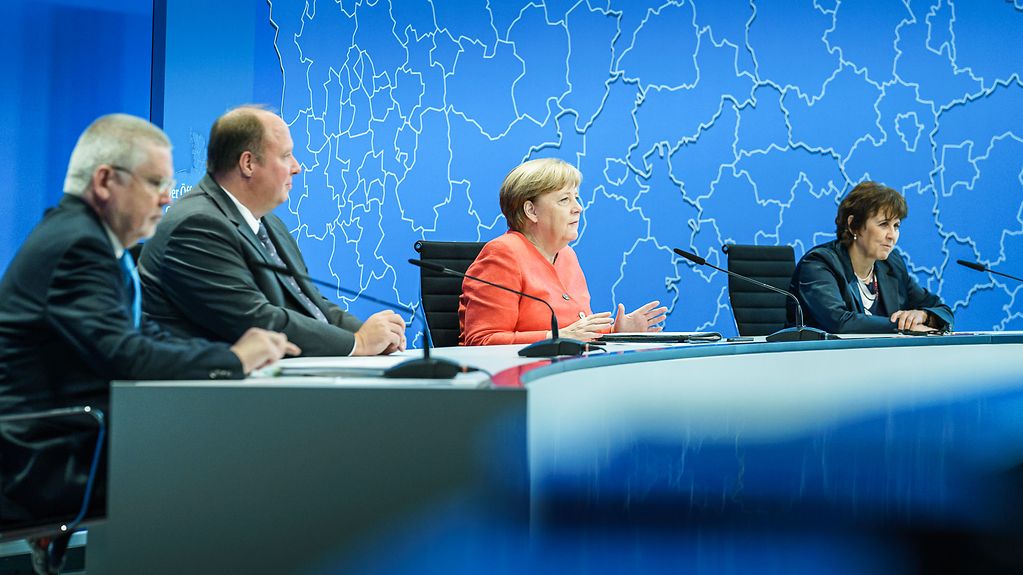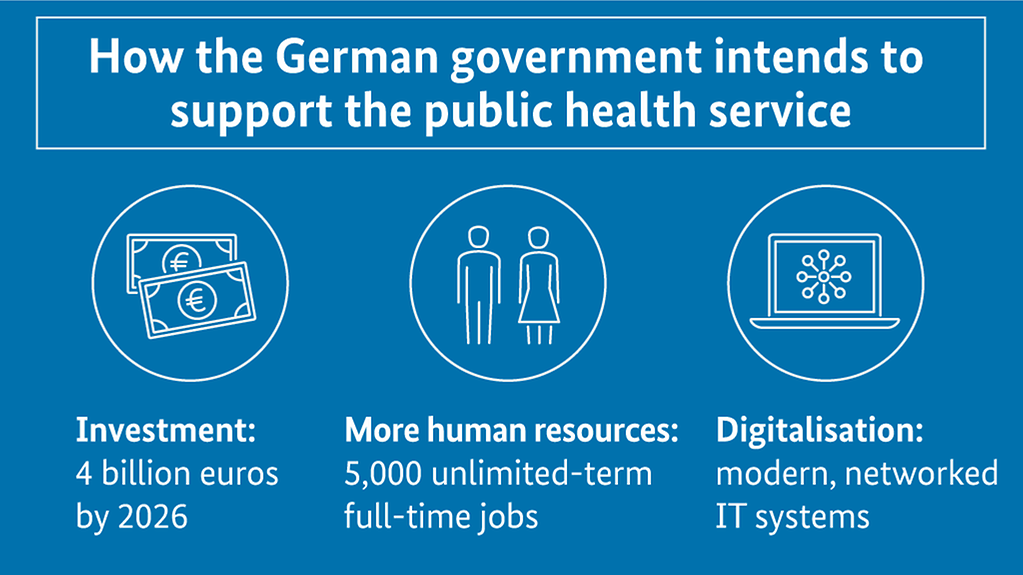Chancellor's video conference
Breaking infection chains, imposing and monitoring quarantine, contact tracing – since the outbreak of the COVID-19 pandemic, the health offices have shouldered all these duties. Chancellor Angela Merkel has spoken with public health service experts and pledged further support.
3 min reading time

Discussing online - representatives of the federal and state government and the local health offices have discussed the challenges facing the public health service in a video conference
Photo: Bundesregierung/Denzel
What public health service staff have managed in the face of the COVID-19 pandemic is absolutely "exceptional", said Chancellor Angela Merkel on Tuesday at the Federal Chancellery. Day in, day out they are there for the people, there to hear and address their concerns. She expressed her heartfelt thanks for this. The public health service is responsible in no small way for the fact that "we have managed to keep infections largely under control in Germany, and that we can hopefully continue to do so".
On Tuesday the Chancellor was part of a large online conference with more than 500 practitioners working at local level, to discuss the current challenges facing the public health service. Heads of local district authorities, mayors and the heads of health offices all over Germany were involved in the dialogue. The goal was to find out more about work on the ground and about how the political level can help and support this work.

To better equip the public health service to deal with the pandemic in the long term, the German government intends to provide support in the form of investment, human resources and digitalisation.
The German government intends to support the public health service in three areas:
- Investment: 4 billion euros by 2026
- More human resources: 5,000 unlimited-term full-time jobs
- Digitalisation: modern, networked IT systems
Photo: Bundesregierung
5000 new jobs and investment in digitalisation
Angela Merkel announced that the federal government intended to put together a support package, the pact for the public health service, worth a total of four billion euros. The federal government will provide funding for human resources, digitalisation and modern structures. By the end of the coming year, a minimum of 1,500 new jobs should be created in the federal states and vacancies filled with doctors, and technical and administrative staff. By the end of 2022, at least another 3,500 full-time posts are to be created. Parallel to this, the government is to invest in digitalising the health authorities.
To provide rapid assistance for the health offices in this exception situation, the German government had already agreed on numerous changes. The Robert Koch Institute, for instance, has trained 500 containment scouts to help health offices trace contacts and infection chains. Medical students and Bundeswehr troops are also supporting the health offices.
Incredible rise in the workload of health offices
The health offices play an absolutely pivotal role in addressing the crisis, declared the Chancellor. Reporting cases, contact tracing and testing – all these additional responsibilities have increased the workload of health offices on an almost inconceivable scale. That is why they are reaching the limits of what is possible with the staff they have, she continued. The technical equipment and digital communication capacities too leave much to be desired. Many health offices are now seeking new ways to achieve structural improvements.
Division of responsibilities between federal, state and local levels is a strength
Angela Merkel stated that she hoped the conference would be an incentive to further strengthen the health offices and thus help strengthen local self-government. "It is perhaps also due to the structure of our state that we have come through the pandemic so well, with the federal government trying to help, the federal states, and decision-making opportunities at local level too. That sets our country apart, and this is something we want to retain," stressed the Chancellor.
During the conference, five health offices (Gütersloh, Cologne, Soest, Reutlingen and Frankfurt am Main) presented concepts they have devised to help them master the challenges of the pandemic and the course of the outbreak.